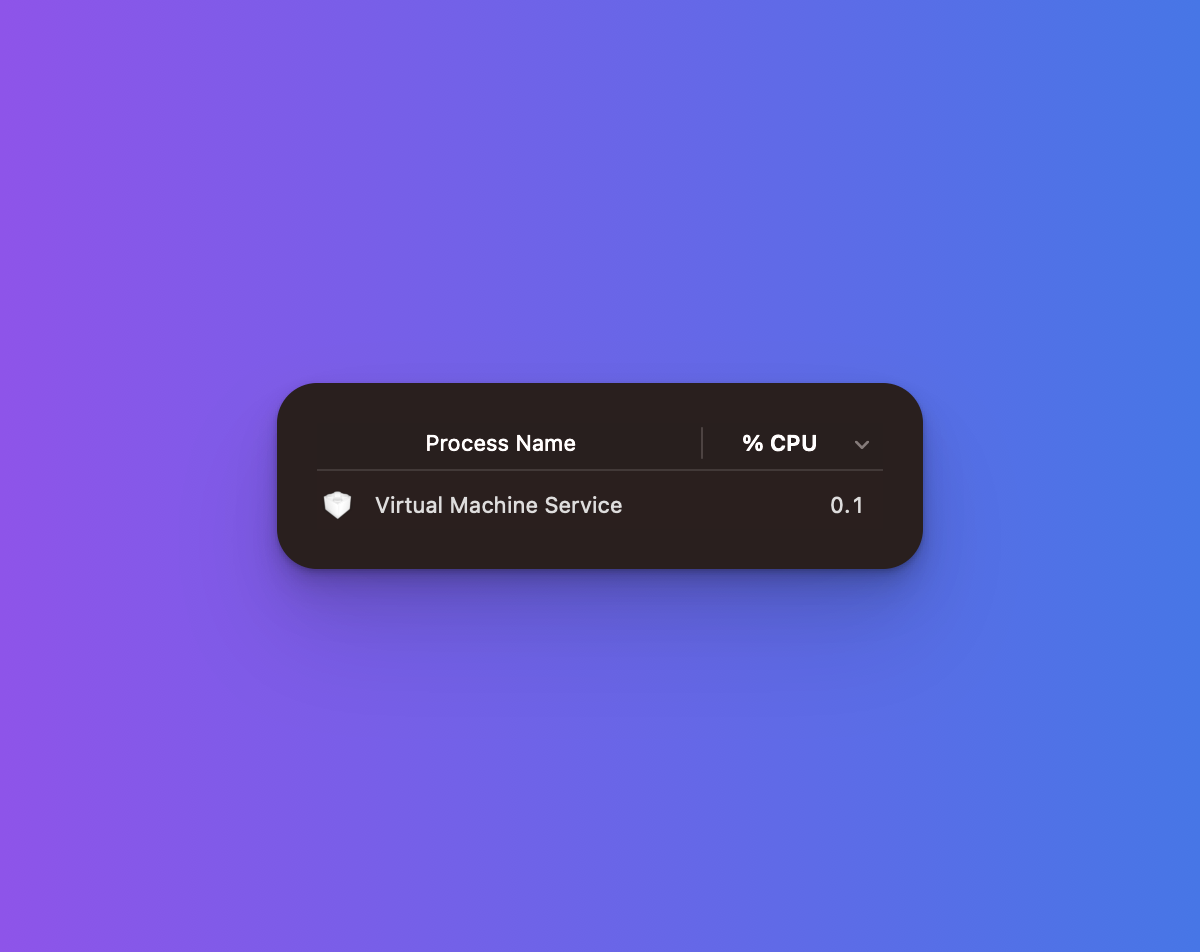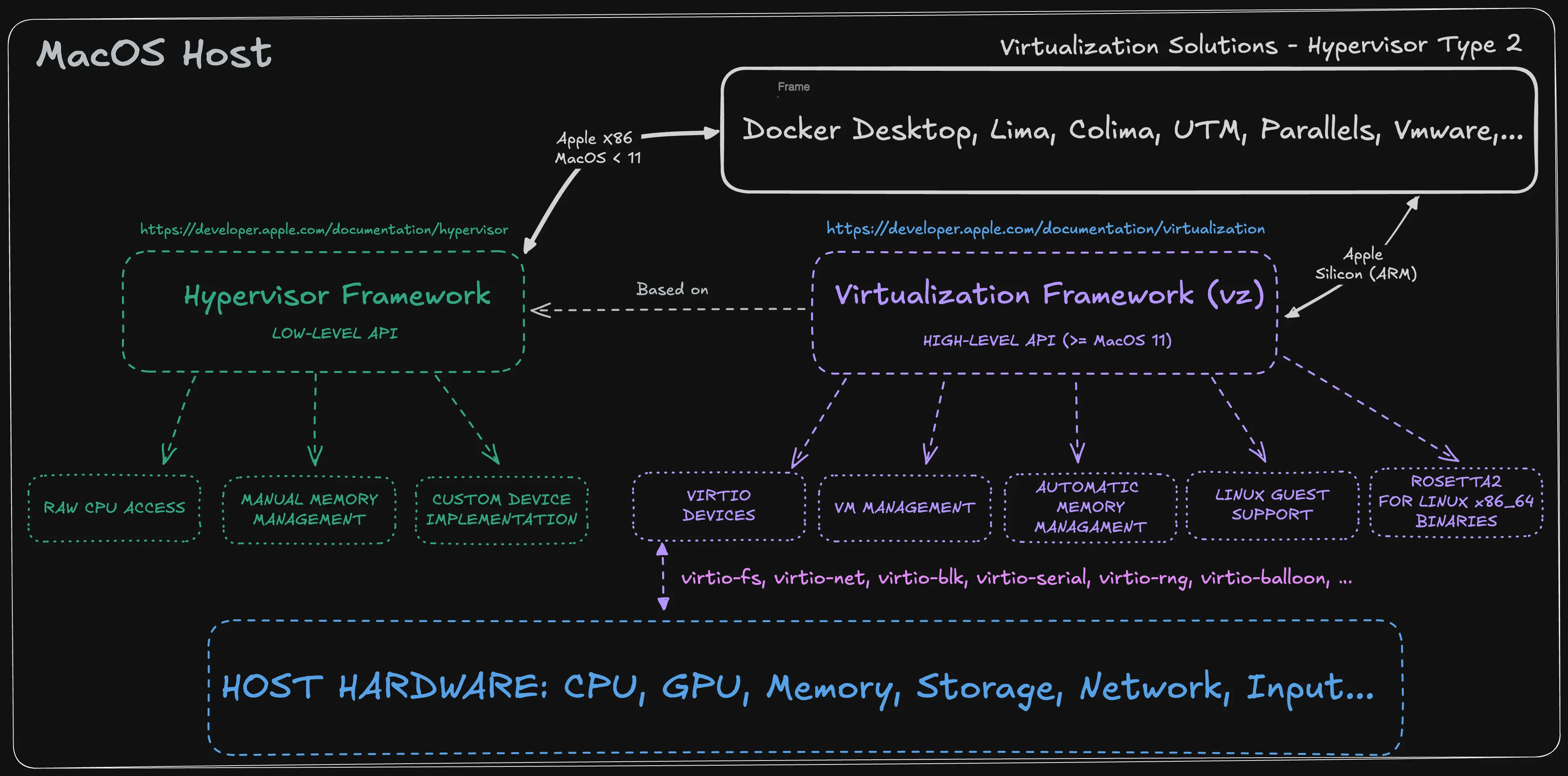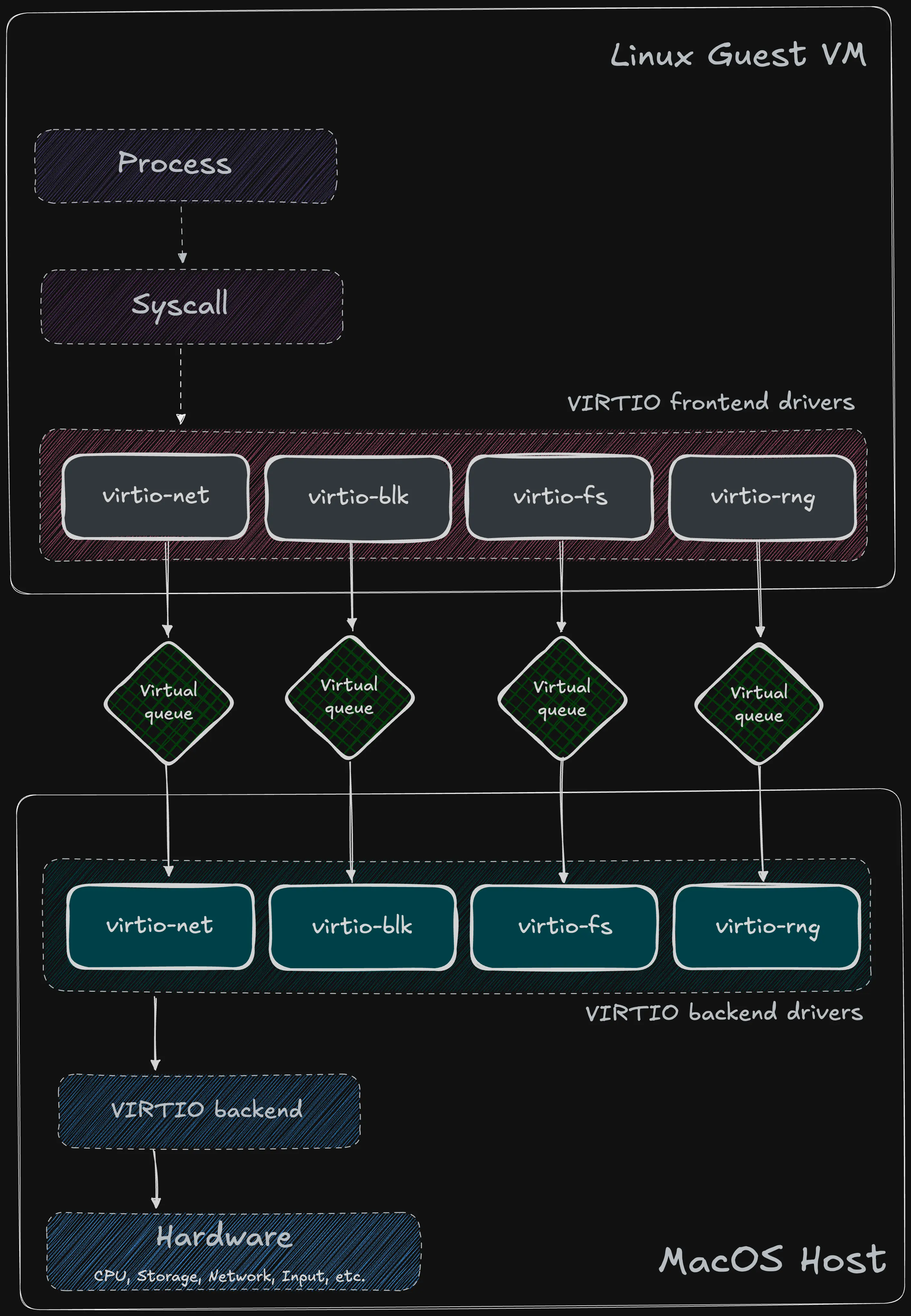

Docker Desktop on Mac is a Battery-Killing Nightmare
Look, I've been running Docker on Mac for years and it's always been shit. Docker Desktop takes 30 seconds to boot up (longer after macOS 14.1 broke something in the virtualization layer), turns my MacBook into a space heater, and kills battery life faster than running Slack and Chrome at the same time. File syncing between host and containers moves at the speed of molasses, making hot reloading during development about as pleasant as watching paint dry.
OrbStack fixes the three things that make Docker Desktop a pain in the ass: it starts in 2 seconds instead of making you wait, it doesn't drain your battery, and file syncing actually works. Plus you get full Linux VMs, which is basically like having WSL2 but for Mac.

The Single VM Trick That Changes Everything
Instead of Docker Desktop's multiple-VM clusterfuck, OrbStack runs everything in one lightweight Linux VM using Apple's built-in virtualization framework. Think WSL2 but done right - one kernel, shared resources, no fighting between different VMs for CPU and memory.
The architecture is dead simple: single VM, shared kernel, everything talks to each other. Built with Swift for the Mac parts, Go and Rust for the heavy lifting. No Electron bullshit, just native code that doesn't make your fans sound like a jet engine.
This isn't just marketing fluff - the single VM approach eliminates the resource contention that plagues Docker Desktop's multi-VM setup. When you're running multiple containers, they all share the same kernel namespace instead of fighting over host resources. The result is predictable performance that doesn't degrade as you scale up your local development environment.
File Syncing That Doesn't Suck
Remember spending 5 minutes waiting for npm install to finish because Docker Desktop's file sharing is garbage? OrbStack uses VirtioFS with custom optimizations that make bind mounts actually fast. We're talking 4.22 seconds vs 6+ seconds for file operations - that adds up when you're doing it hundreds of times a day.
Your project files show up at ~/OrbStack so you can poke around container volumes from Finder. Bidirectional sync that actually works in real-time. No more "why isn't my code change showing up in the container" debugging sessions.
Linux VMs Without the VM Overhead
Here's where OrbStack gets interesting: you can run full Linux distros alongside your containers. Ubuntu, Arch, whatever - they boot in under 10 seconds and use the same shared kernel approach. Perfect for when you need to test something in actual Linux instead of just containers.

Rosetta integration means x86 containers work great on Apple Silicon. No more platform flag bullshit or wondering why your Intel-based container runs like garbage. It just works.

